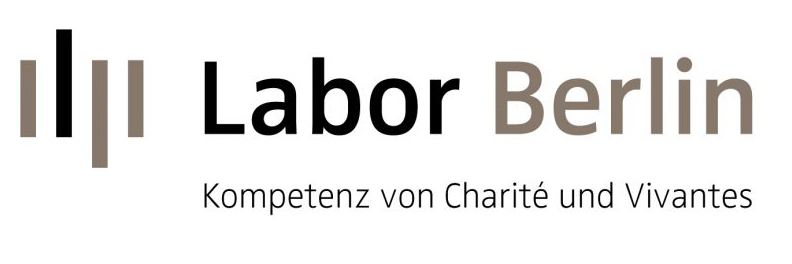Biopharmaceutical models that work (1): Somatic gene therapy
by Jobst Landgrebe, Cognotekt CEO
Since CRISPR/Cas was discovered ten years ago and made available for usage in eukaryotic cells, this genetic recombination technology has raised high hopes and revived the prospects for gene therapy. But which type of gene therapy?
Exhaustive experiments with CRISPR/Cas in the mammalian germ line have shown that the technology cannot be safely used in eukaryotic germ cells, because this recombination system has too many serious genetic side effects. These comprise unintended single nucleotide edits, but more importantly, massive chromosome damage such as chromothripsis and loss of heterozygosity in 30 to 40 percent of all CRISPR-Cas9-targeted human embryonic cells. The usage of CRISPR-Cas9 in the human germ line would with high likelihood result in genetically damaged human chimeras.
But what about somatic gene therapy using CRISPR/Cas? There are two areas in which it can be envisaged: (i) extra-corporal gene targeting in vitro in circulating cells or their precursors and (ii) in organs with good accessibility and natural local limitation of the intervention’s scope.
Promise and challenges
Extra-corporal gene targeting, which can be used, for example, in hemoglobinopathies such as sickle cell disease and beta-thalassemia, has the advantage that the delivery of the CRISPR/Cas machinery together with the required nucleic acids (gRNA, repair template) to the target cell is much simpler in vitro by using simple electroporation than in vivo with vectors. The target cells can be isolated, genetically manipulated and can – albeit without full certainty – be screened for unintended edits or chromosome damage before reinfusion into the circulation. This also enables an exact dosage of the therapeutic principle.
For somatic cells in solid organs, the procedure is much more complicated because vectors must be used. Multiple problems can arise.
First, delivery: Lipid nanoparticles can get caught in the liver and fail to distribute to the target organ properly. The question of the toxicity of different lipid coats itself is not yet fully clarified. Viral vectors may elicit immune reactions with the potential to reduce or thwart efficacy. They are furthermore limited with regard to the size of the cargo they can carry. There is no possibility to achieve an exact dosage.
Second, specificity: It may be hard to limit expression of the CRISP-system to the right cells in the target organ despite the usage or specific promoters.
Third, safety: The system may introduce undesired point mutations and chromosomal aberrations into somatic cells, which may cause cancer or other systemic diseases such as auto-immune conditions. This concern applies to both somatic gene therapy approaches, but is more severe in organ therapy because the genetic side effects cannot be assessed before the therapy, but occur under it.
Currently, the most promising somatic organ gene therapy target is the eye because as a part of the brain, the retina is situated behind the blood-brain barrier and the retina is anatomically separated from other organs by the orbita. Multiple clinical trials are ongoing.
Conclusions
Somatic gene therapy with CRISPR/Cas and other methods of gene targeting is still in its infancy – as it has been since the 1990s. Since then, many challenges have been overcome, but more progress is needed. Currently, the most promising approaches are extra-corporal targeting methods because modified cells can be screened to some extent for undesired effects of the genetic manipulation, which is impossible when targeting organs.
Contact us to tell us about your challenges in biopharmaceutical R&D or marketing to see if we can help you.
Register here for our Cognotekt Biopharma Series brought to you every week by Cognotekt.
Über Cognotekt:
Cognotekt wurde 2013 als Beratungsunternehmen für komplexe, daten- sowie forschungsgetriebene Branchen gegründet. Der Schwerpunkt liegt auf der Verknüpfung von Life Science mit Data Analytics. Zu den Kunden gehören vor allem Biotech- und Pharmaunternehmen sowie Family Offices und Private Equity Boutiquen. Dazu gehören unter anderem First Capital Partner, Bayer, BetterDoc oder MedGate. Mit seiner Kombination aus Datenanalyse, tiefem Branchen-Knowhow und Unabhängigkeit ist Cognotekt ein objektiver Berater bei strategisch relevanten Entscheidungen.
Kontakt:
Vor welcher Herausforderung stehen Sie? Schreiben Sie uns.
Ausgewählte Kunden:
Das Team:
Wir verstehen Komplexität

Dr. Jobst Landgrebe
Gründer und Partner
Arzt, Biochemiker und Mathematiker
25 Jahre Berufserfahrung in Biochemie, Medizin, Biomathematik, Beratung Life Science, KI und IT
Schwerpunkt:
Life Science, Produkt
und Portfolio, KI

Dr. Raija Kramer
Partnerin
Linguistin und ehemalige Professorin für Linguistik an der Universität Hamburg
10 Jahre Berufserfahrung in der Unternehmensberatung und Linguistik
Schwerpunkt:
Geschäftsprozesse
und -organisation
In ihrer akademischen Laufbahn beschäftigte sich Dr. Raija Kramer mit der Rolle von Sprache im digitalen Zeitalter. “Das intensive Studium von Sprache hat mich gelehrt, komplexe Systeme zu entschlüsseln und Zusammenhänge zwischen sich wiederholenden Mustern und Entscheidungsprozessen zu erkennen.” Seit über zehn Jahren setzt sie ihre umfassende Erfahrung in der Bewertung von digitalen Prozessen und privatwirtschaftlichen Infrastrukturen erfolgreich in der Zusammenarbeit mit Kunden ein.

Daniel Beck
Partner
Informatiker
15 Jahre Berufserfahrung in Software-Entwicklung und -Architektur, IT, Data Science und KI
Schwerpunkt:
Life Science IT,
Data Science und KI
Bevor Zahlen und Zusammenhänge analysiert werden können, müssen diese zielgerichtet aufbereitet werden. Genau diese Schritte von den Rohdaten über den maschinenlesbaren Datensatz hin zu datengetriebenen Schlussfolgerungen ist die Aufgabe von Daniel Beck: “Daten lügen nicht – zumindest nicht, wenn man diese vollumfänglich erhebt und analysiert. Ich arbeite mit unseren Kunden daran, ihre Daten in ihrer Gesamtheit zu erfassen und die Erkenntnisse daraus für eine höhere Wirtschaftlichkeit zu verwenden.”

Vor welcher Herausforderung
stehen Sie? Schreiben Sie uns.
Dr. Raija Kramer
info@cognotekt.com
+49 221-643065-10




